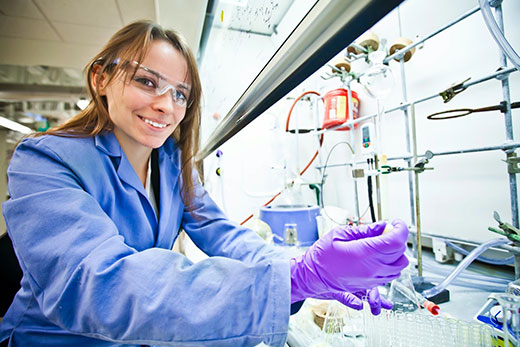A pair of chemistry graduate students, from Emory and Nagoya University in Japan, combined forces to demonstrate how a newer, more efficient strategy can be applied to synthesize natural compounds that hold potential medicinal benefits.
The Journal of the American Chemical Society (JACS) published their findings, showing how C-H functionalization speeds up synthesis of two promising marine alkaloids from a sea sponge, known as dictyodendrin A and F.
“We were able to cut the number of steps needed to synthesize these products nearly in half, compared to previous, more traditional methods,” says Kathryn (Katie) Chepiga, an Emory PhD student of organic chemistry. “The ability to more efficiently synthesize them greatly improves the chances that they will be produced on a larger scale so that more can be learned about their biological properties and potential benefits.”
Previous research has found that dictyodendrin A inhibits telomerase, suggesting its potential for cancer chemotherapy. And dictyodendrin F inhibits an amyloid-cleaving enzyme, hinting at its potential to treat Alzheimer’s disease.

